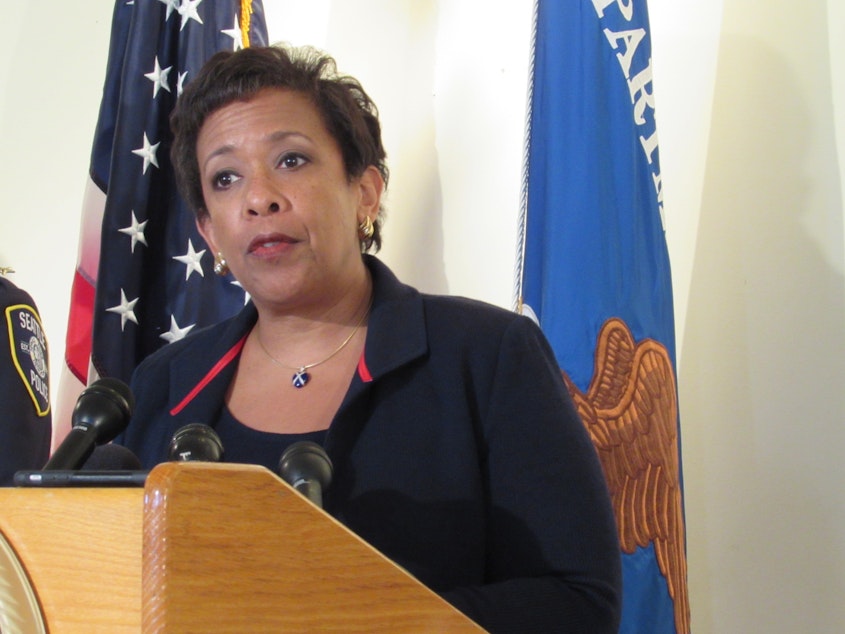Seattle Police Reforms Bring Praise From U.S. Attorney General

U.S. Attorney General Loretta Lynch says she came to Seattle as part of a tour of cities “that have turned the corner” toward better policing.
She appeared alongside Mayor Ed Murray and Seattle Police Chief Kathleen O’Toole, who all said Seattle has become a model for other cities.
TRANSCRIPT
Speaking at the Northwest African-American Museum Thursday, Lynch said she attended roll call at SPD’s West Precinct during her visit.
She said the officers she spoke with are focused on making the “consent decree real.” That includes SPD’s new crisis intervention training.
Lynch said police have come from around the country to see how Seattle police officers respond to the many mentally ill people they encounter.
Lynch: “We talked about Seattle’s efforts in that regard and the work that the police department is doing in conjunction with other agencies and the city to have diversion, to have treatment options.”
Lynch’s visit to Seattle coincided with a positive report from the monitor overseeing SPD’s federal consent decree. The monitor found that SPD officers are now documenting force “whenever it is used,” and that high-level investigations into use of force are “consistently excellent.” Those are improvements over the Department of Justice’s findings that prompted the consent decree.
And those strides put the city on a path to someday exit federal oversight if the progress continues.
Lynch also noted her support for police-worn body cameras. The DOJ has given Seattle $600,000 toward using the cameras. But she acknowledged that Seattle’s Community Police Commission and others oppose the use of the cameras until privacy concerns are addressed.
Lynch: “What we try and do in the department is provide the resources to provide this asset which has been proven to be effective in many ways. But we trust local jurisdictions to raise these issues and to work on these issues and find ways to accommodate their needs.”
During her visit, Lynch also met with teens who worked with police over the summer and with community members in a roundtable that was closed to the press.
Outside the museum, a few protesters held a banner that said, “Stop Police Terror.” They say they’re organizing a national day of action in October to protest the number of people killed by police officers around the country.

